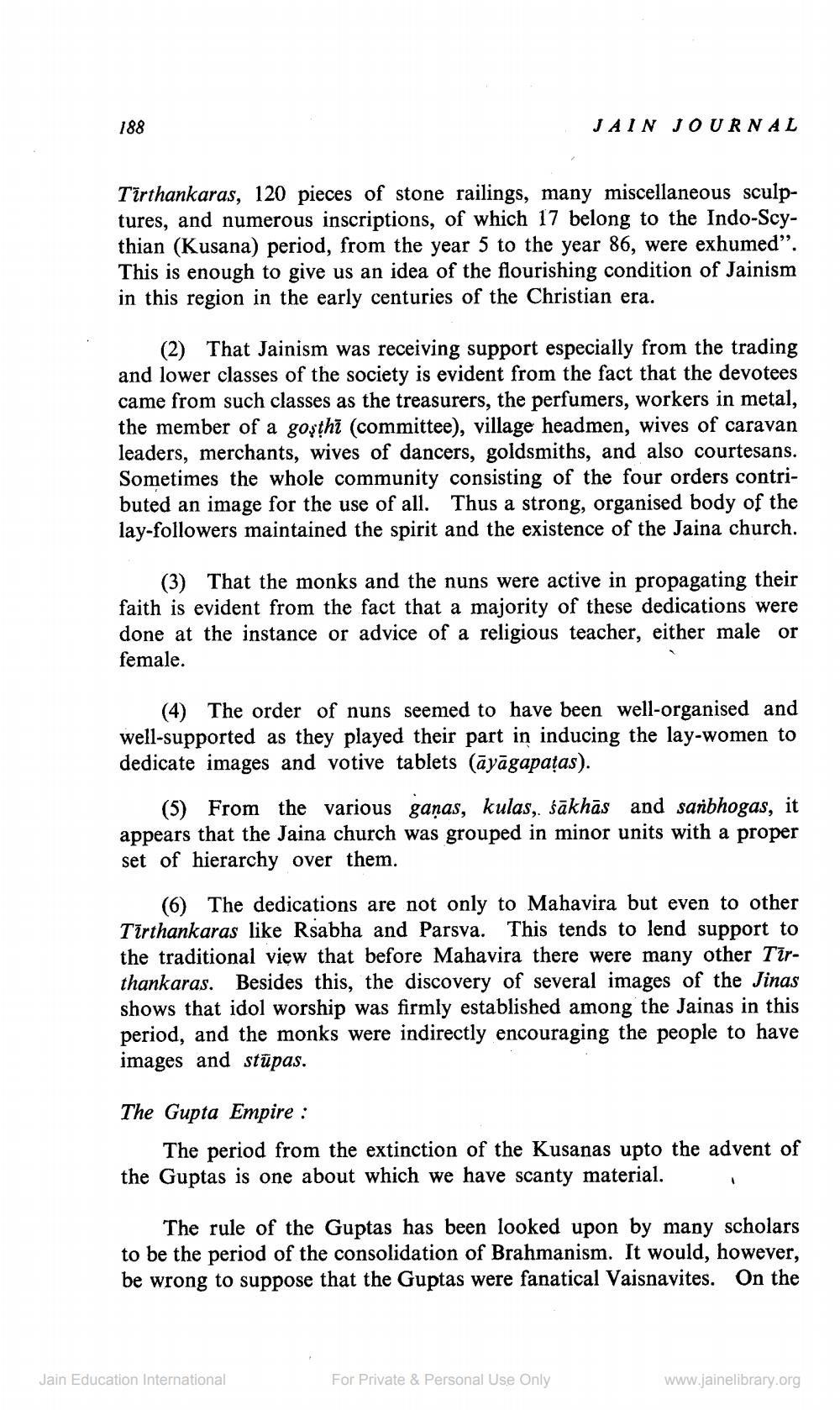________________
188
Tirthankaras, 120 pieces of stone railings, many miscellaneous sculptures, and numerous inscriptions, of which 17 belong to the Indo-Scythian (Kusana) period, from the year 5 to the year 86, were exhumed". This is enough to give us an idea of the flourishing condition of Jainism in this region in the early centuries of the Christian era.
JAIN JOURNAL
(2) That Jainism was receiving support especially from the trading and lower classes of the society is evident from the fact that the devotees came from such classes as the treasurers, the perfumers, workers in metal, the member of a gosthi (committee), village headmen, wives of caravan leaders, merchants, wives of dancers, goldsmiths, and also courtesans. Sometimes the whole community consisting of the four orders contributed an image for the use of all. Thus a strong, organised body of the lay-followers maintained the spirit and the existence of the Jaina church.
(3) That the monks and the nuns were active in propagating their faith is evident from the fact that a majority of these dedications were done at the instance or advice of a religious teacher, either male or female.
(4) The order of nuns seemed to have been well-organised and well-supported as they played their part in inducing the lay-women to dedicate images and votive tablets (āyāgapaṭas).
(5) From the various ganas, kulas, sākhās and sanbhogas, it appears that the Jaina church was grouped in minor units with a proper set of hierarchy over them.
(6) The dedications are not only to Mahavira but even to other Tirthankaras like Rsabha and Parsva. This tends to lend support to the traditional view that before Mahavira there were many other Tirthankaras. Besides this, the discovery of several images of the Jinas shows that idol worship was firmly established among the Jainas in this period, and the monks were indirectly encouraging the people to have images and stūpas.
The Gupta Empire:
The period from the extinction of the Kusanas upto the advent of the Guptas is one about which we have scanty material.
The rule of the Guptas has been looked upon by many scholars to be the period of the consolidation of Brahmanism. It would, however, be wrong to suppose that the Guptas were fanatical Vaisnavites. On the
Jain Education International
For Private & Personal Use Only
www.jainelibrary.org




